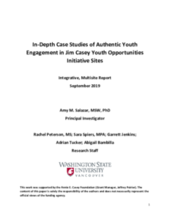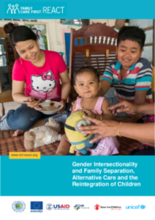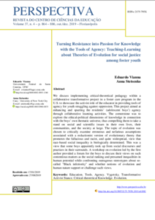Displaying 711 - 720 of 2221
This paper examines the data of empirical research on child-parent relationship in the Russian adoptive and birth families.
The purpose of this study is to synthesize and share the Jim Casey Youth Opportunities Initiative’s approach to youth engagement. The study’s findings communicate how authentically engaging youth can help both the Jim Casey Initiative and youth-serving systems achieve their desired results.
This study replicates and extends previous findings of the Fostering Healthy Futures (FHF) program, a 30‐week mentoring and skills group intervention for preadolescent maltreated children in foster care.
This paper focuses on qualitative findings on how young people in long-term foster care in Ireland interpret permanence and stability.
This article examines the challenges encountered by, and the opportunities available to, young adults as they transition from informal kinship-based foster care to independent living in the Bikita District of Zimbabwe.
This study from Family Care First (FCF) and Responsive and Effective Child Welfare Systems Transformation (REACT) utilized a mixed method approach to data gathering and analysis to understand the effects of gender, identity, and institutional practices on the well-being of children in alternative care in Cambodia.
The authors of this article discuss implementing critical-theoretical pedagogy within a collaborative transformative project in a foster care program in the U.S. to showcase the activist role of the educator in providing tools of agency for youth struggling against oppression.
This paper explores the usefulness of undertaking a longitudinal analysis of these data at local authority level to determine the care pathways for children entering care, differentiating by age at entry.
This study draws on in-depth interviews with eight foster care couples and explores how foster carers construct practices around bodily care and touch in new foster care relationships.
The aims of this study were to examine rates of reentry and risk factors associated with reentry into out-of-home care among children and youth involved in the child protection (reported for abuse/neglect) and youth-in-conflict (reported for behavioral issues) programs.



